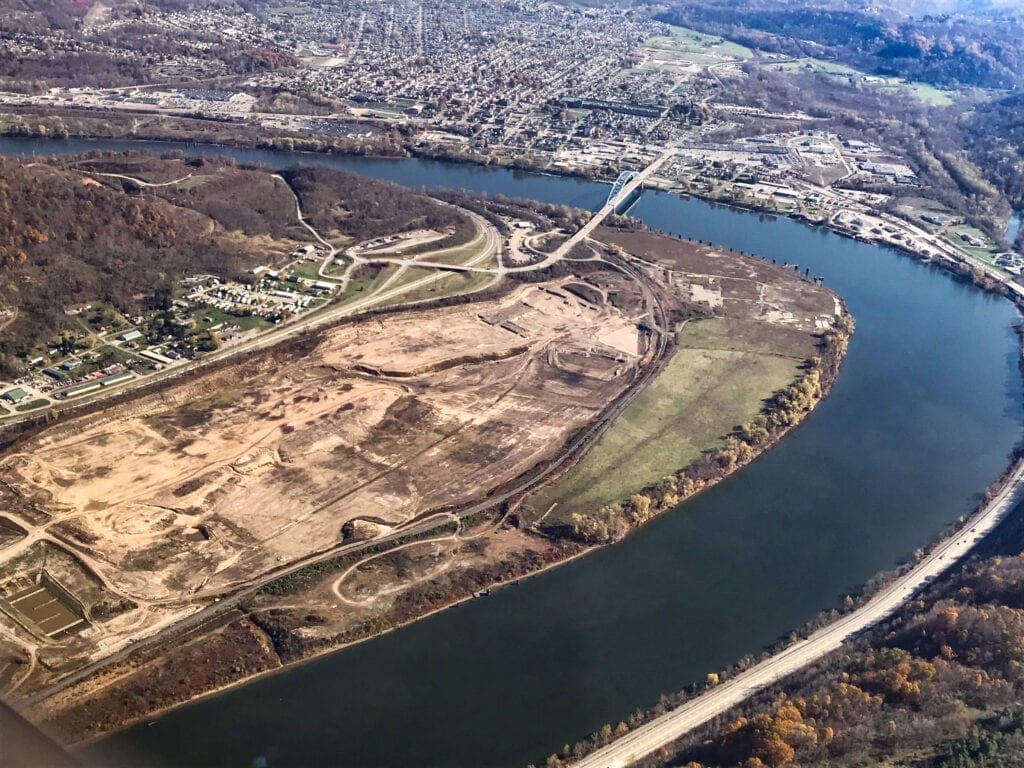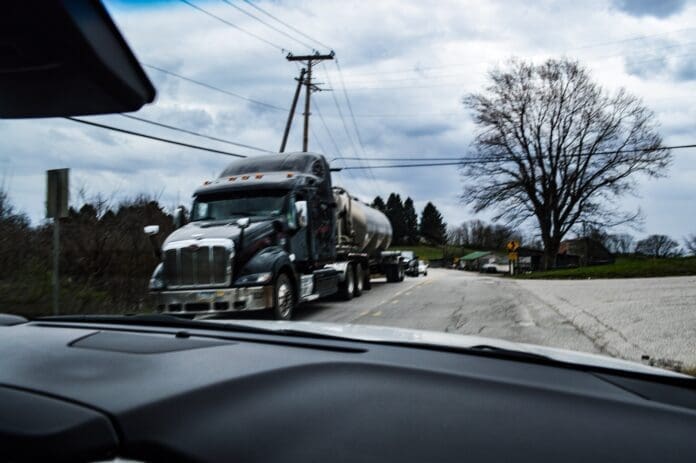Deputies are now patrolling Marshall County’s secondary roadways in unmarked vehicles as a part of a new program initiated by Sheriff Bill Helms.
Although he says the program remains in its “infancy” stage, the enforcement already has made a difference and has caught the attention of county residents.
“We are just getting started with it, but we did have a deputy stop and cite a truck connected to the gas and oil industries, and the reaction on Facebook from the residents was great,” Helms explained. “The county does have a lot of gas and oil traffic on our roadways, but it’s not on the same scale when the industries first arrived to this area. Back in those days, there were convoys of trucks and superloads coming in. But as the infrastructure has grown, it’s cut down on the traffic, but we do still receive complaints.
“In the beginning, we had a lot of issues with those big trucks and the drivers not knowing the area. It was all new to them, and the majority of the people working on the well pads and on the pipelines had never been to this area of the country,” he said. “For a while there, those drivers had a pretty rough time with all of the hills, and of course, there are not many straight roadways in Marshall County.”
Over the next few months, the sheriff said, the number of unmarked vehicles will increase.
“The goal all along has been to remind the people with the gas companies that they are in our county,” Helms insisted. “And those unmarked vehicles have already sent a strong message to our residents and to the people working in those industries. They know now that we’re not just going to get used to it because that wouldn’t be fair to the people who live here.
“The amount of traffic may have decreased over the years, but we still have it. There are still gas wells here in Marshall County, and I believe there’s going to many more in the future, especially if PTT does build that plant across the river. If they do, and I believe it still is coming, that cracker will need a constant flow of natural gas and that’s something that we have a lot of beneath our feet.”

Delay After Delay
The possible petrochemical plant in the Dilles Bottom area of Belmont County was first introduced in 2015, but since PTT Global American has delayed the announcement of a final investment decision on the $10 billion project multiple times. Since March 2020 when Covid-19 emerged across the world, PTT announced yet another postponement until later this year.
If constructed, PTT’s plant would be the second in the region, joining Shell Chemical’s cracker in Beaver County, Pa. Helms, though, wants the sheriff’s office to be prepared if and when the Thailand-based corporation does move forward with the massive facility.
“If, in fact, if they do build that cracker plant over in Dilles Bottom, I believe the traffic will be as busy as it was in the very beginning. I believe once PTT announces that they are moving forward with the construction, the drilling immediately will increase because the demand will go through the roof,” Helms said. “I get all of the green energy stuff, but we are not there yet and that’s why the demand for natural gas isn’t going away any time soon.
“But for now, I just want our residents to know that they should call us if there are experiencing issues,” he continued. “I had one person tell me that they didn’t want to bug me, and I told him not to worry about that because it doesn’t bug me. It’s our job to protect and serve and we take that very seriously. If we don’t know someone is having an issue, we can’t do anything about it. So, yes, please continue to call so we can continue doing our job for the people of Marshall County.”

Surprise, Surprise
Although the amount of traffic connected to the gas and oil industries has diminished in recent years, Helms feels that only allows for local residents to be surprised by the large trucks while traveling through the county.
“I guess there for a while you just expected them. You even left earlier than usual because of the number of convoys there were throughout the county,” Helms said. “But now our residents don’t know what to expect, and that can be a dangerous situation.”
Marshall County contains more than 400 miles of paved roadway, and well pads are located along U.S. 250, and on most of the ridge roads. That’s not to mention the traffic generated by the two rural plants operated by Williams Energy in the Oak Grove and Majorsville areas.
“In Marshall County, our roads are hilly, twisty, and windy, and while those truck drivers have learned the roads and are driving them far better than several years ago, our residents continue to encounter issues,” Helms explained. “We have incidents when an accident involving one of those trucks have forced an entire road to close to traffic, and that means we have had people unable to get home or to go to work, and it also means our county’s first responders can’t through either. That right there is a big problem.
“The good news is that the gas companies have cooperated with us, and they have let their drivers know not to run illegally or to speed because when they do those things, they are putting lives in danger. That is why we have started having unmarked cruisers in the county,” the sheriff added. “Starting patrols with unmarked vehicles was something I spoke with our residents about when I was campaigning, and we are getting that started now, and their reaction was very positive toward it.”











